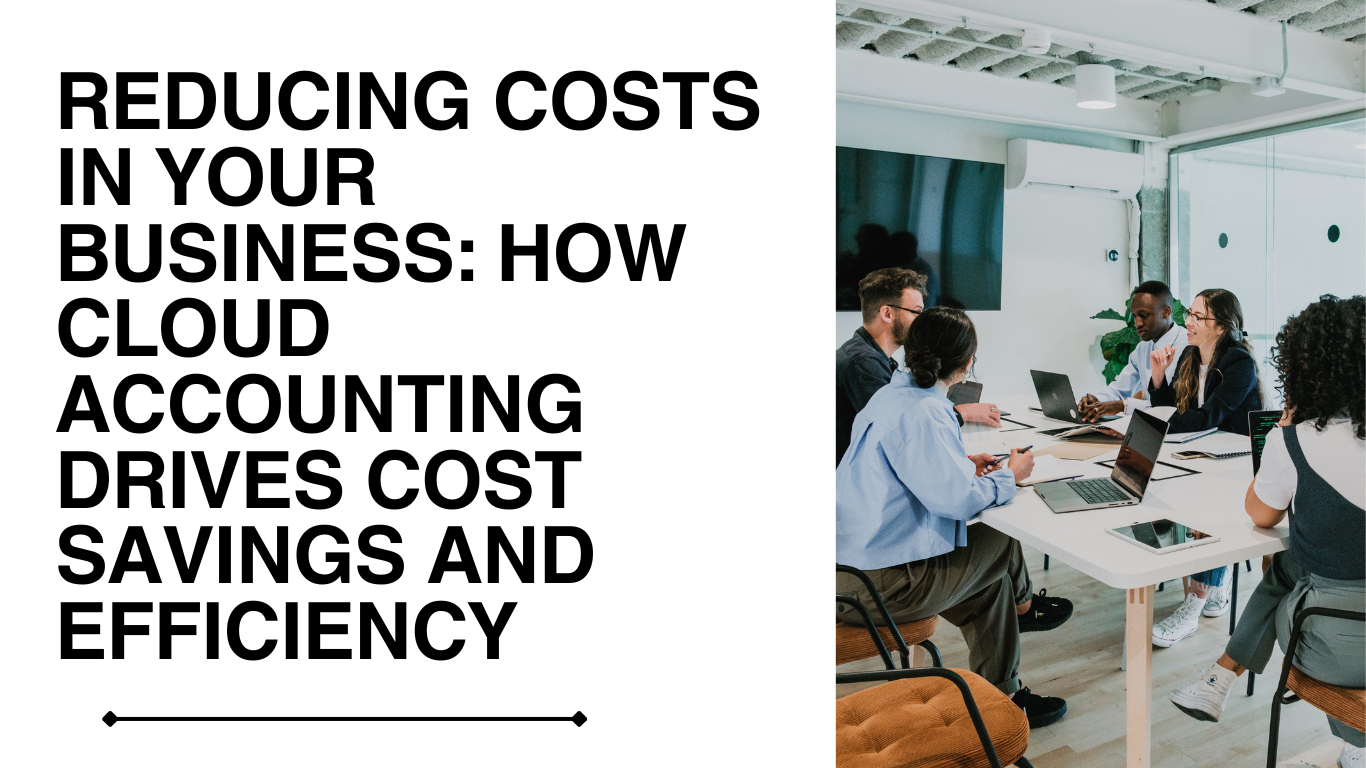Reducing Costs in Your Business: How Cloud Accounting Drives Cost Savings and Efficiency
 William Johnson
William Johnson
Got a small or medium business? You know the routine: juggling tight budgets, hunting down invoices, and wrestling with spreadsheets. Every dollar counts, and finding ways to save without sacrificing quality feels like fighting an uphill battle. That's where cloud accounting comes in—a revolution that's not just about technological advancements but real cost savings. By taking the leap to cloud systems, small and medium businesses like yours can automate processes, reduce errors, and find time for what matters most: growing your business. In this article, we're going to demystify how cloud accounting can save you money, walk you through the process, and answer burning questions you might have. Stay with us—we've got actionable advice to help you take the reins on your finances.
The Unseen Cost Drivers under Traditional Accounting
Traditional accounting systems? They're dinosaurs. Imagine manual input, paper trails, and old software that must be updated repeatedly. These methods waste resources:
Labor Costs: Time spent on unnecessary work like data entry or reconciliation.
Error Risks: Human mistakes that lead to costly fixes or compliance issues.
IT Overhead: Server maintenance, software licenses, and upgrades that eat into profit.
For companies already working on thin margins, such inefficiencies are a silent killer. Cloud accounting does away with such pain points by automating processes, keeping data in one place, and providing scalable solutions that expand with you.
Why Cloud Accounting Is Worth It
Converting to cloud accounting is not only a fad—it's an investment that saves money in the long run. Here's why:
Lower IT Expenses Cloud platforms are subscription-based, so you pay only for what you consume. No more IT personnel, servers, or software maintenance charges. According to Gartner research, companies save as much as 30% of IT expenses once they move to the cloud.
Fewer Errors, Fewer Penalties Manual accounting is subject to errors. Cloud systems automatically calculate, flag errors, and ensure compliance with tax laws. Fewer errors mean fewer penalties and less time correcting issues.
Scalability Without Overcommitting Require more storage or users? Cloud platforms allow you to scale up (or down) in a snap. You're not locked into expensive hardware or multi-year commitments.
Increased Coordination Cloud accounting lets your team see data in real time, wherever they are. No more emailing spreadsheets—just smooth collaboration.
Cost Savings after Migration Following relocation, companies generally see immediate savings. Take, for example, a small bakery in Chicago that achieved a 20% drop in administrative costs after adopting cloud accounting. By automating billing, they freed up staff to focus on customers.
The Step-by-Step Cloud Accounting Process
Moving to the cloud is simpler than you think. Here's your roadmap:
Assess Your Needs
What features do you need? Invoicing, payroll, or inventory management?
How many users will access the system?
Choose a Provider
- Research tools like QuickBooks Online, Xero, or FreshBooks. Compare pricing, integrations, and support.
Clean Your Data
- Remove duplicates, balance accounts, and back everything up.
Migrate and Test
- Work with your provider to move data. Run parallel tests to ensure accuracy.
Train Your Team
- Most platforms offer free tutorials. Schedule a group session to get everyone up to speed.
Go Live and Monitor
- Switch to the new system. Track performance metrics to measure savings.
Pro Tip: Partner with a migration expert. A Forbes survey shows that companies with professional help complete migrations 40% faster.
Maximizing Savings Post-Migration
Cloud accounting isn’t a set-it-and-forget-it solution. To keep costs low:
Review Subscriptions Regularly Cancel unused features or users.
Integrate Tools Link your accounting app to CRM or e-commerce platforms to streamline workflows.
Stay Updated Take advantage of new features from cloud providers to boost efficiency.
3 Common Cloud Accounting Questions
Q1: Is cloud accounting secure?
A: Yes. Trusted providers use encryption, multi-factor authentication, and regular audits. Cloud platforms are often more secure than on-premises systems since they’re updated to combat threats.
Q2: How long does migration take?
A: It varies by data volume and complexity. Small businesses can migrate in days, large ones in weeks—with expert help, it’s faster.
Q3: Do I need tech skills to use cloud accounting?
A: No. Most platforms are user-friendly and offer 24/7 support. Free training resources are available to help you start.
Final Thoughts
Cloud accounting migration isn’t just about saving money—it’s about gaining time, flexibility, and peace of mind. With automation and real-time insights, you can focus on growth. If you’re tired of spreadsheet woes or high IT costs, it’s time to consider the switch.
Ready to dive in? Drop us a line for a free consultation. We’ll guide you through choosing the right platform and migrating smoothly—no hard sell, just honest advice. Your finances deserve an upgrade. Let’s make it happen together.
Subscribe to my newsletter
Read articles from William Johnson directly inside your inbox. Subscribe to the newsletter, and don't miss out.
Written by
